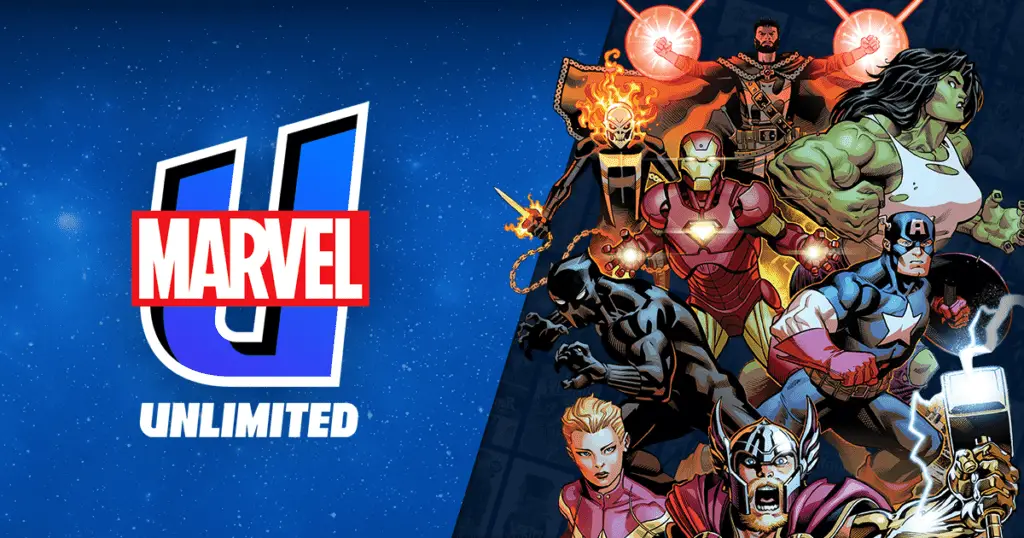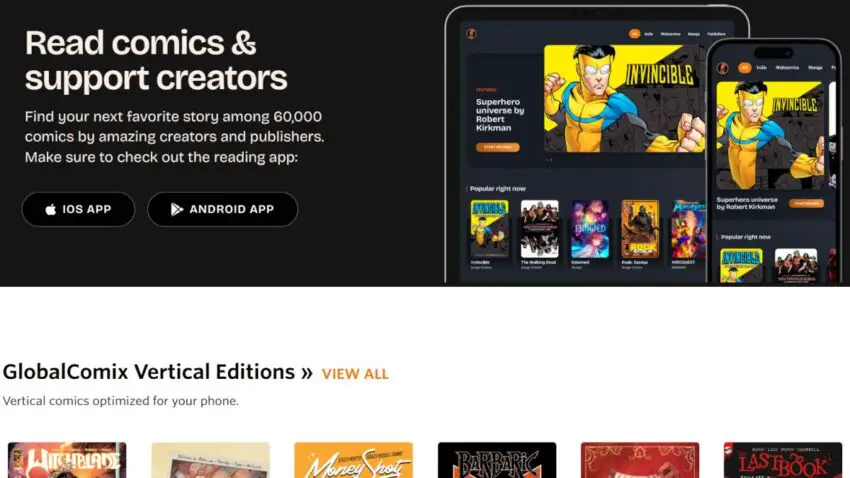How the Music Industry’s Past May Predict Digital Comics’ Future
Anyone growing up in the 2000s can tell you that the music scene went through a gigantic, cataclysmic shift that it never quite recovered from – even to this day.
Napster (or Limewire, if you were later to it all) allowed you to get music from anywhere in the world for the low cost of? Nothing.
Ethical and legal arguments aside, Napster was a boon for anyone who liked to listen to music but didn’t have the funds to pay for it (or the patience to listen to FM radio). Instead of going to Walmart or the local record store (RIP Sam the Record Man), you could think of a title and download it within minutes on your 56k modem.

Some artists were more clever about tackling the digital download evolution than others. Metallica sued Napster, which made downloading officially “illegal” from that point onwards. However, legal entanglements didn’t stop anyone from downloading their favorite songs and burning them onto CDs.
Other artists became pretty good at blocking you from searching for the actual name of the song. You just had to know the alternate name of the song to find it, e.g. “Lamp Biscuit – Break Things.”
In truth, there was no putting the genie back in the bottle. Digital music was here to stay, and it very quickly eroded the CD market.
How do you combat eroding physical sales? Make something even easier than installing shady torrent-sharing software on your PC, and give listeners the same level of access that they had with pirating.
Enter Spotify.
No longer are listeners forced to buy a CD when they only want to listen to one or two songs, leaving another 10 or 12 songs that you didn’t necessarily care for. Any song you could imagine, you can hear it at negligibly similar quality, effectively giving you the same experience you had before. It’s all above board, and artists are getting paid… mostly.
The problem with a digital storefront presented by the Spotify model is the requirement to keep the entry barrier as low as possible. A Spotify subscription can’t break the bank.
So, what happens if Spotify is not collecting very much money? Less incoming revenue means smaller payouts to the artists. The argument here is that you’re competing with not getting paid at all, so be happy with the scraps you get.

The same challenges have been affecting comics for a long time as well. Although DC and Marvel have instituted a digital subscription model lately, they’re behind the ball in terms of getting digital readers to do this legitimately.
Similar to Spotify, if the barrier to entry is too high, you risk driving readers back to pirating. Some examples include waiting six months for the latest new release on Marvel Unlimited or the trust that was eroded by the implosion of ComiXology. If the goal is to convince comic pirates to jump to the legitimate side, shaky foundations or aggressive windows don’t make a compelling argument.
So, the argument becomes: “Are you trying to get those who pirate to pay, or are you trying to drive new readers to your digital marketplace?”
This is where services like GlobalComix become very interesting. Numerous indie publishers of all levels have flooded this service with content. You can read much of the back catalog from Image, Boom, Dynamite, Mad Cave, and more – with new updates every week. GlobalComix follows Spotify’s promise to make digital reading easier and affordable.
A question to ponder: “Are digital marketplaces cannibalizing the physical market?”

If you have a subscription to GlobalComix and DC Universe Infinite Ultra, will you go into the store and pay $5 to $6 per issue if you’re only interested in reading the book? Are you creating new fans by giving out work for nearly nothing and then asking them to pay for a collection copy after the fact? There are schools of thought to both questions.
The real challenge is that making comics is very expensive. It always was, and it always will be. Printing is just a portion of the cost, so even though digital does spare you the cost burden of printing, it doesn’t mean that it’s any easier to put a comic together.
When you can’t collect the extra revenue from physical items like variant covers or other gimmicks, how do you recoup the costs of creating a comic?

I can tell you, as a creator who only writes, it would be impossible for me to continue if I were just going after digital revenue via a subscription service like GlobalComix. As a reader, having access to years and years of comics is something I could never imagine. Now is a very interesting time, indeed.
Time will tell if digital is the future, if physical makes a comeback, or if we’re just looking at something different entirely. My hope is that we still find some symbiotic way of keeping everything afloat.

Creative things like DC Digest copies, retailer incentives, and WebToons printing their most popular webcomics seem to be going in the right direction to try to keep physical alive, but, as it has for the past 30+ years, it feels like arranging deck chairs on the Titanic.
The one thing that’s for sure is that comics aren’t going anywhere. We just don’t know what form the Comics Industry might take.
About The Reviewer: Adriano Ariganello is a writer, and letterer, of comics like “Crazy Latte Thing Called Love”, “Unlimited Udo” and the upcoming “From Parts Unknown” under the publisher name: Pesto Comics.
You can find more of his work @pestocomics on all of the socials or on Substack at pestocomics.substack.com
We hope you found this article interesting. Come back for more reviews, previews, and opinions on comics, and don’t forget to follow us on social media:
If you’re interested in this creator’s works, remember to let your Local Comic Shop know to find more of their work for you. They would appreciate the call, and so would we.
Click here to find your Local Comic Shop: www.ComicShopLocator.com
As an Amazon Associate, we earn revenue from qualifying purchases to help fund this site. Links to Blu-Rays, DVDs, Books, Movies, and more contained in this article are affiliate links. Please consider purchasing if you find something interesting, and thank you for your support.


